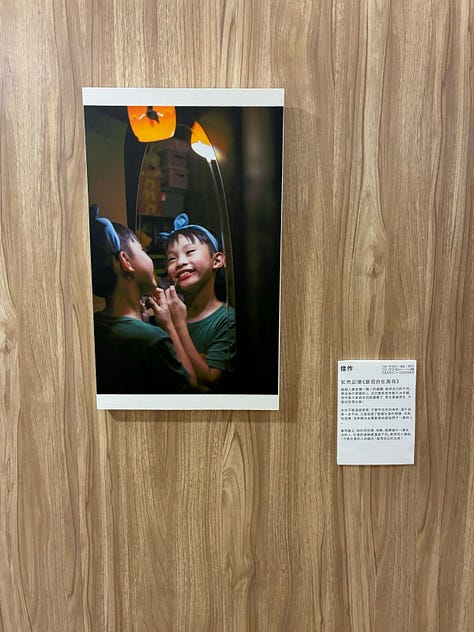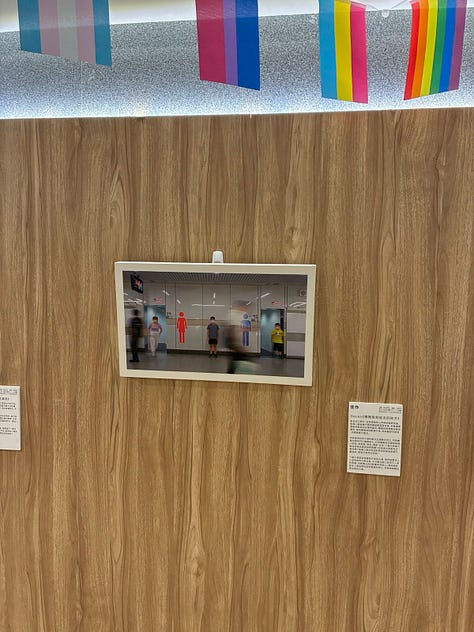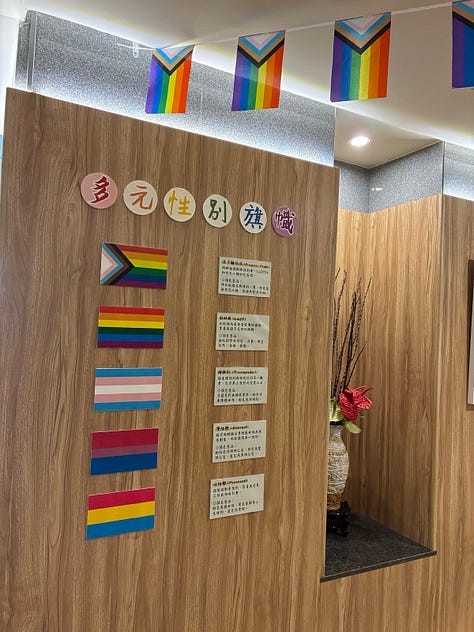INTERSECTIONS | May 29, 2025
A rundown of issues, analysis, and must-read stories about marginalized communities in the Sinophone landscape.
Dear subscribers,
Welcome to Intersections, our monthly Lingua Sinica bulletin highlighting the stories of marginalized communities in the Chinese-language media space — from women’s issues and feminism to queer perspectives, the struggles of disabled people, and more.
Tomorrow marks Duanwu (端午), the Dragon Boat Festival, when communities across the Chinese-speaking world celebrate with races honoring the ancient poet Qu Yuan (屈原). Perhaps in tribute to those long dragon boats cutting through the water, I've allowed myself to go a bit longer on a few stories I found particularly compelling this month — stories that deserve a bit more space.
This edition examines how Chinese-language media covered the tragic murder of a Thai transgender woman, revealing unfortunate patterns in how outlets frame gender-based violence. We explore the concept of "buffet feminism" in Taiwan and the double standards it exposes. And we look at the legal and media challenges facing same-sex couples across the Taiwan Strait, where progressive legislation meets geopolitical tensions.
Right after this newsletter, we'll be posting a story from our colleagues at Tian Jian (田間), our Chinese-language outlet on the media, about Chinese media coverage (quickly disappeared) of how a high school teacher allegedly harassed students across multiple schools over 14 years while administrators dismissed reports as "rumors."
As always, I'd love to make this a conversation. Please reach out with your thoughts, questions, or story suggestions.
Dalia Parete
CMP Researcher
dalia@chinamediaproject.org
Regional Echoes
Words Matter, Lives Matter
Last month's murder of a 25-year-old Thai transgender woman by a Chinese national in Pattaya revealed stark differences in regional media coverage and troubling patterns in how transgender victims are portrayed.
Despite high-profile reporting in Hong Kong, Taiwan, and Thailand, China's official media completely ignored the story, leaving audiences unaware of a Chinese citizen's involvement in this international tragedy. Some personal blogs on Baidu picked up the news. Blogs like Uncle Chen in Bangkok (曼谷陈大叔) and White Swan (白鸥飞行) reported with detailed accounts. Both used the term 'transgender' or bianxing (变性) —a discriminatory term focusing on surgical transition rather than gender identity, overlooking the broader transgender experience.
Hong Kong's HK01 (香港01) focused heavily on gruesome details of the crime. Their headline emphasized her sex work, deflecting attention from the hate crime itself. The report centers on the suspect's claim of being "misled" about the victim's gender identity — a dangerous narrative often used to rationalize anti-transgender violence. Sensationalized language specifying the victim "died in a miserable state" (死狀悽慘) and showcasing crime scene images turned this tragedy into public spectacle.
Vision Thai (看見泰國), founded in 2014 by Chinese couple Chit Lee (李致德) and Angel Chen (陳韋如), noted facts without downplaying the suspect's nationality, calling it "a shocking murder case" (举世震惊的凶杀案) that raised questions about transgender prejudice. However, by describing the killer's "shock" (震惊) at discovering her transgender status, the coverage almost legitimized his violent reaction.
Taiwan's Mirror Media (鏡週刊) provided the most comprehensive coverage. The outlet used the more accepted terminology "trans woman" (kuaxingbienüren 跨性別女). However, by emphasizing the perpetrator's "emotional loss of control" (情緒失控) upon learning about her transgender status, the coverage inadvertently framed violence as a reasonable response to perceived "deception" (欺騙) — reinforcing harmful transgender panic narratives.
Media outlets should reject narratives that treat transgender lives as expendable and recognize how transphobia, gender-based violence, and sex work stigma intersect to enable such tragedies.
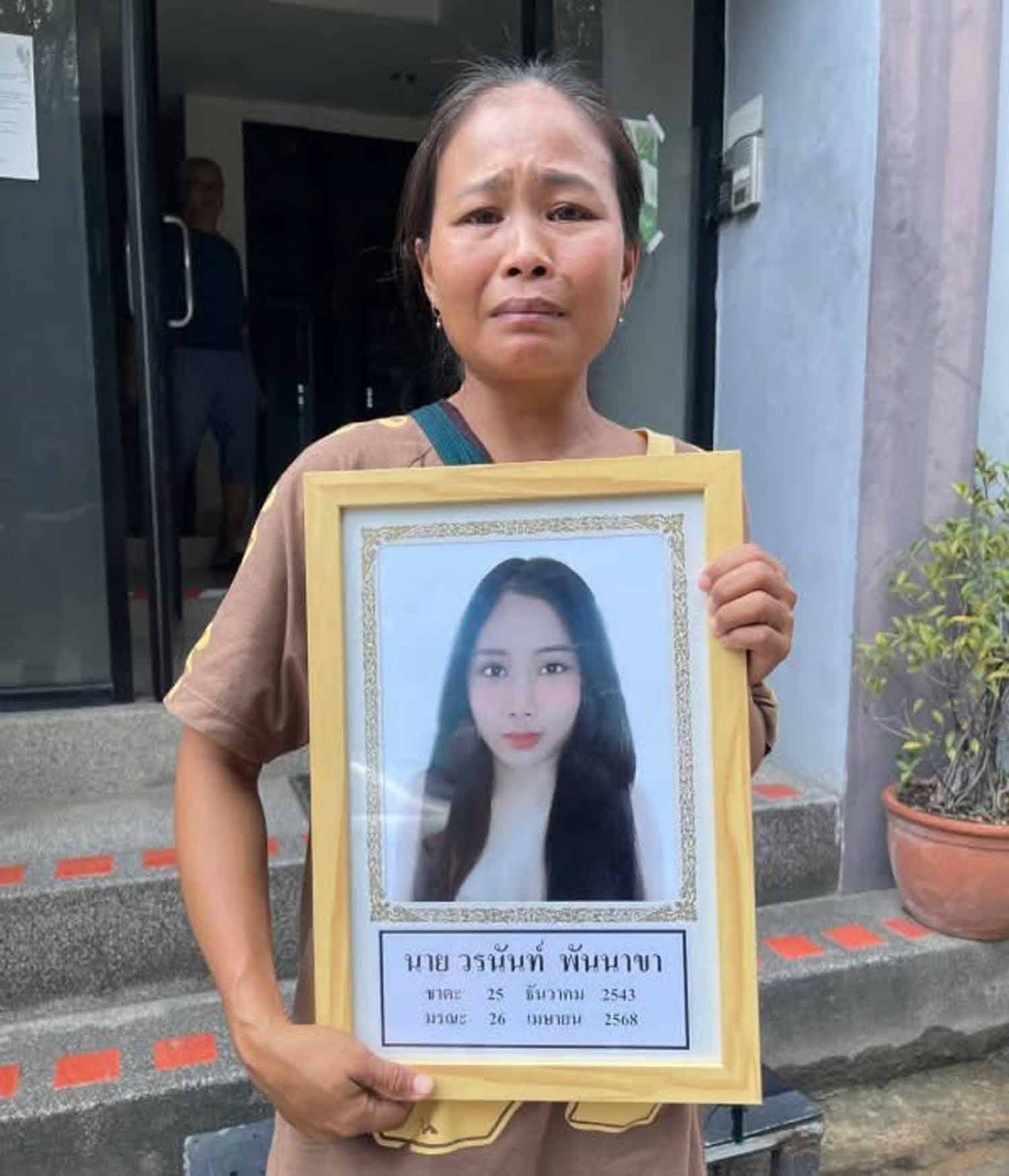
HERSTORY
Forgotten Past
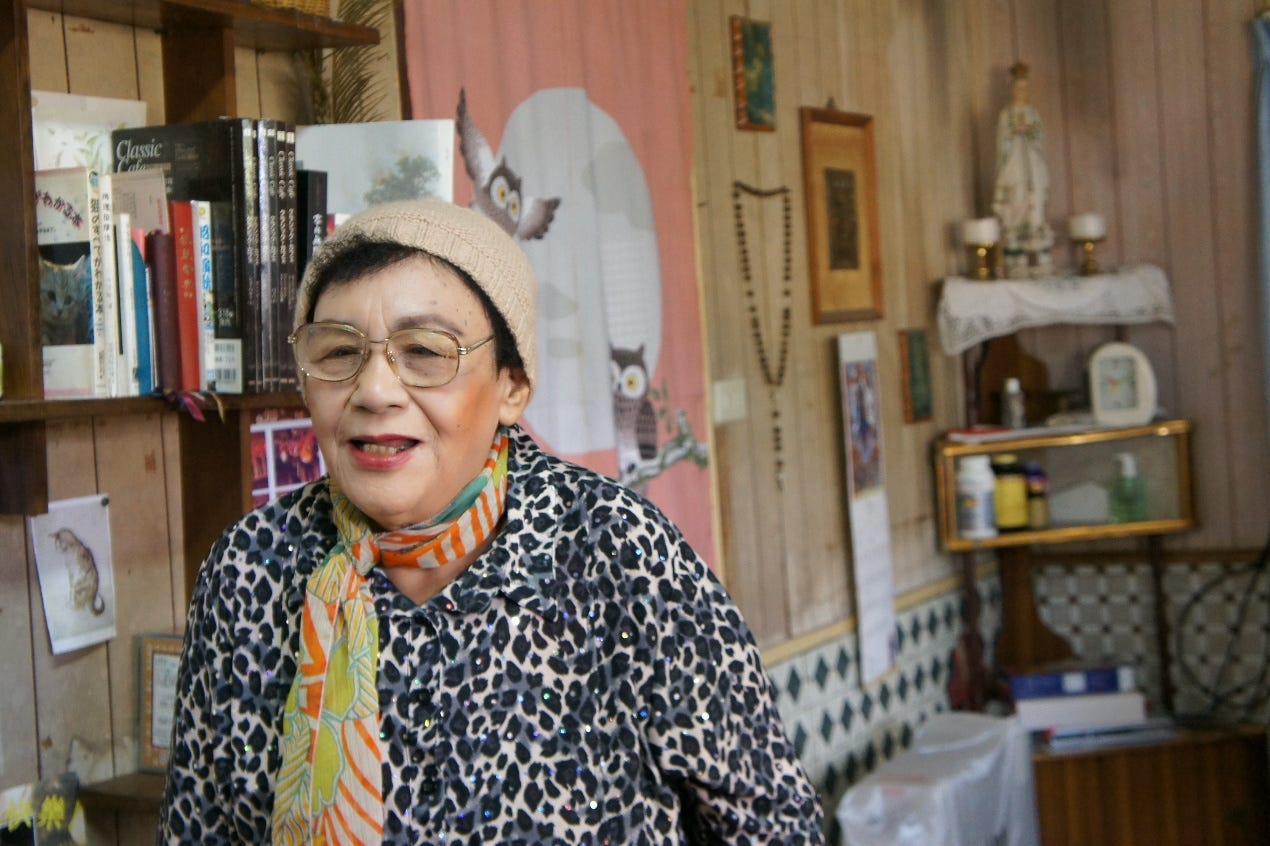
This month, in memory of the end of the White Terror, Germany's Deutsche Welle (DW) published an article on its Chinese-language website examining a traumatic and under-acknowledged chapter for Taiwanese women during those long years of political repression under Kuomintang rule: the violence and sexual abuse many women endured.
In the report, journalist Chou Yu-Chun (周昱君) delves into the journey of Gao Juhua (高菊花) — also known as Painana (派娜娜) — an indigenous Tsou singer who was among the first to speak out about the abuses during the White Terror period. Gao was around 20 when her father, a Tsou leader, was executed as a political prisoner in 1951. She was subsequently forced by the KMT government to provide sexual services to foreign officials. As she recounts in an interview for her documentary "Confined Existence" (禁錮的餘生), set to be released this August: "I am a woman, you know? Having to (forcibly) sleep with him (..) it was so humiliating, really very painful."
Sexual violence served as a systematic tool to break down dignity. As former transitional justice worker Peng Jen-yu (彭仁郁) explains: "When those in power within the state system want to oppress ethnic minorities or dissidents, gender-based violence becomes a means to strip away the dignity of political thought criminals." Many Taiwanese women have remained silent since that time, fearing shame would fall on their families.
The article reveals how Taiwan's delayed transitional justice efforts made documentation nearly impossible. Unlike South Korea, which began pursuing legal accountability in the 1990s and recently saw survivors of the 1980 Gwangju uprising come forward during the #MeToo movement, Taiwan only established its Transitional Justice Commission (促進轉型正義委員會) in 2018 — far too late for most survivors to speak out. Most evidence relies on second-hand testimonies, as official records deliberately omitted such crimes. Former commission chair Yang Tsui (楊翠) told DW that Taiwan has likely "missed the opportunity to construct memories of state sexual violence."
If you want to know more about Gao Juhua, her story, resilience, and her career as a singer, read one of her latest interviews by TellTaiwan (台灣放送) in 2012.
FOOD FOR THOUGHT
Straits Divide Same-Sex Couples
The Taiwanese independent media group Plain Law Movement (法律白話文運動), founded by Soochow University (東吳大學) law graduates in 2014 to decode legal complexities for ordinary citizens, recently reported on the hardship faced by same-sex couples across the Taiwan Strait. At the center of their coverage is Ryan and his Chinese partner Righ.
"Not being legally recognized means you're always hiding," says Righ, who became the first cross-strait same-sex couple to register marriage in Taiwan after years of litigation. Their victory came only after marrying in Las Vegas and fighting multiple court battles.
For same-sex couples, the legal obstacle course is formidable. Taiwan's 2024 policy requires couples to first marry in a third country — costing upwards of NT$120,000, or about 3,750 US dollars — before applying for reunion permits. With mainland travel permits suspended since 2019 and student exchanges halted in 2020, many couples simply cannot meet.
"Young people can date, but having a family life is impossible," explains Victoria Hsu of the Taiwan Alliance to Promote Civil Partnership Rights (台灣伴侶權益推動聯盟) who has represented several couples in court. For the roughly 100 cross-strait same-sex couples — compared to 380,000 heterosexual ones — the hurdles seem disproportionate.
This inequity was nearly addressed in 2021, when Taiwan's Mainland Affairs Council (陸委會) proposed amending the cross-strait relations law to allow same-sex couples to marry in Taiwan. The proposal collapsed after public backlash claimed it would enable Chinese espionage. "If you're worried about security risks, we should have background checks. But denying marriage rights altogether is wrong," says Yuling, head of the Cross-Strait Marriage Equality Rights Association (兩岸同婚權益促進會).
The article highlights the stark reality where progressive legislation collides with cross-strait tensions and national security concerns, leaving couples like Ryan and Righ dreaming of simply “celebrating holidays together with both families.”
What does it mean?
"Buffet Feminism"
Earlier this month, a Taiwanese user on Threads challenged the derogatory term "buffet feminism." This phrase, popular since 2016, criticizes women for supposedly cherry-picking equality benefits while avoiding responsibilities.
The user, Baiandyiyu (白潔如), drew from feminist scholar Sara Ahmed's book Living a Feminist Life, which explores how assertive women are labeled "willful" for refusing patriarchal expectations. "The world has never been a restaurant for women,” she wrote. “If this counts as buffet feminism, I welcome every woman to join."
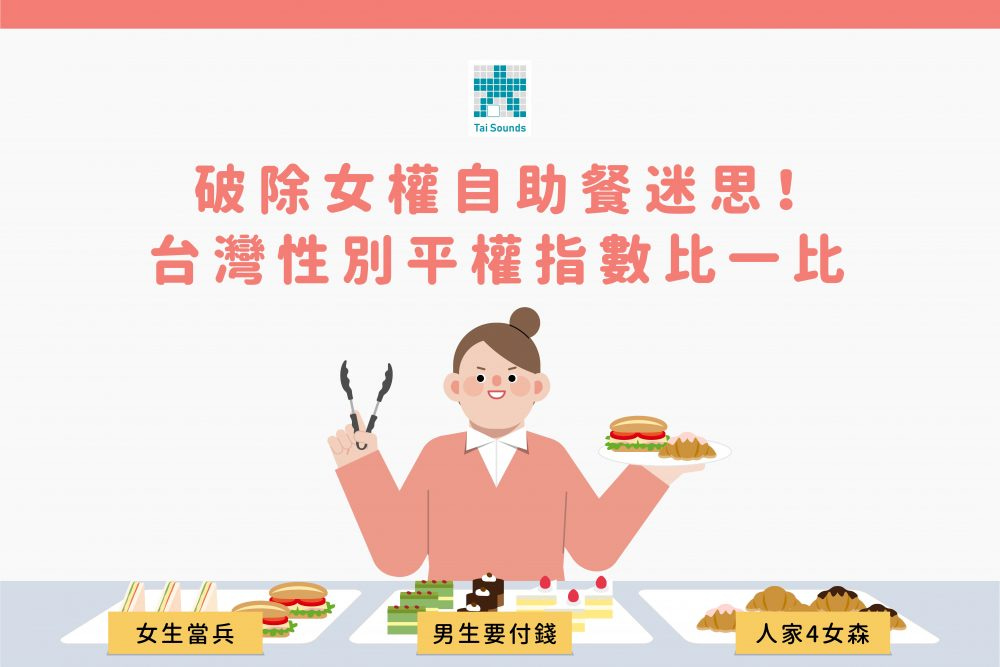
"Buffet feminism,” or nuquan zizhucan (女權自助餐), is derogatory internet slang that originated in Taiwanese media around 2016 to delegitimize feminist discourse. The term suggests women support equality only when convenient, while ignoring accompanying responsibilities.
The feminist advocacy platform Radical Women's Voice (基進女性之聲) explains that the buffet metaphor suggests women "pick and choose" aspects of feminism. But the people making these accusations—mostly conservative men—have never fought for women's basic rights. Yet they criticize women for supposedly picking and choosing equality.
The Taiwanese women's rights website Womany (女人迷) raises the thought-provoking question: Why isn't there a term like "à la carte patriarchy"? Women still shoulder significantly more housework than men — about four hours daily, according to the latest statistics from the Executive Yuan. Yet there's no negative label like "à la carte patriarchy" to criticize men who seek equality but avoid sharing a home. This shows a persistent double standard. Women face continued judgment and criticism with terms like "buffet feminism," while men's inconsistencies remain unregarded.
Seen & Heard
New Taipei City's Social Affairs Bureau, partnering with the Taiwan Alliance to Promote Civil Partnership Rights (台灣伴侶權益推動聯盟), is hosting a "Pride Month Special Exhibition" featuring transgender-themed photographs and diverse gender identity flags until June 30, 2025, at the 25th-floor stairwell of the New Taipei City Municipal Government Building (新北市府行政大樓25樓梯廳). The exhibition coincides with International Day Against Homophobia (May 17) and Pride Month, aiming to promote understanding and acceptance of LGBTQ+ communities while reducing fear and prejudice against diverse gender identities.
